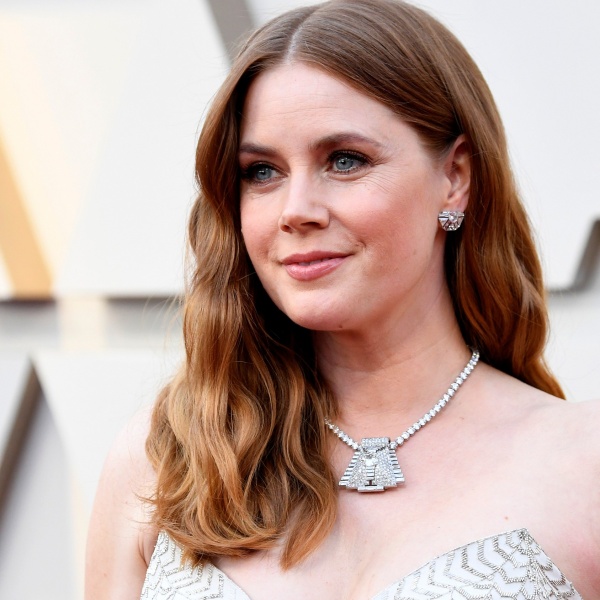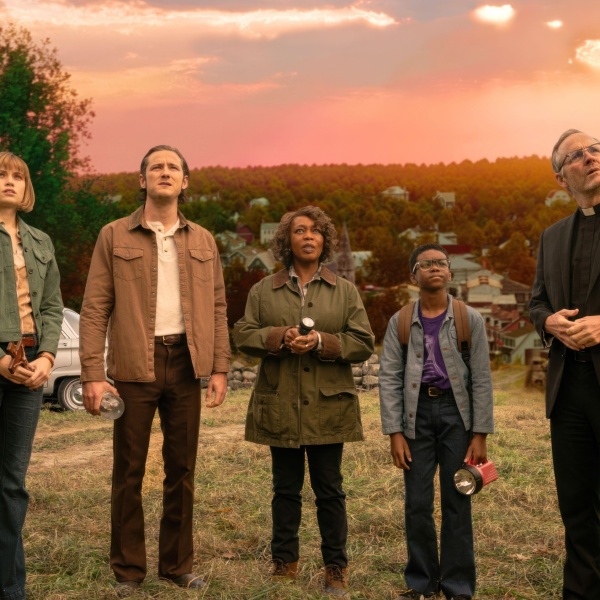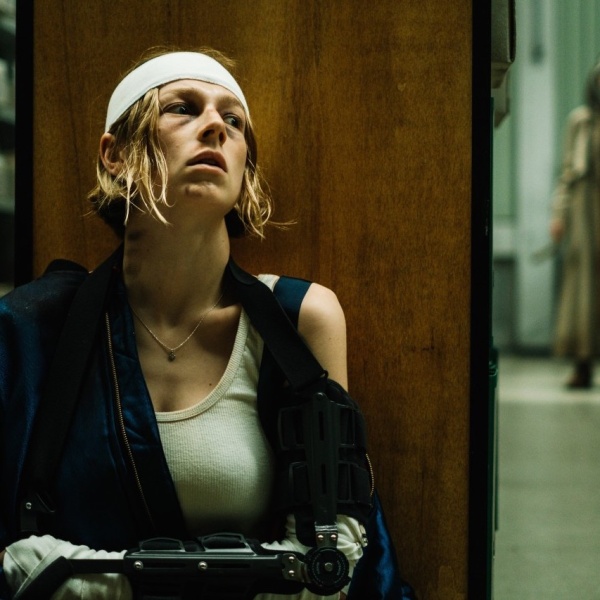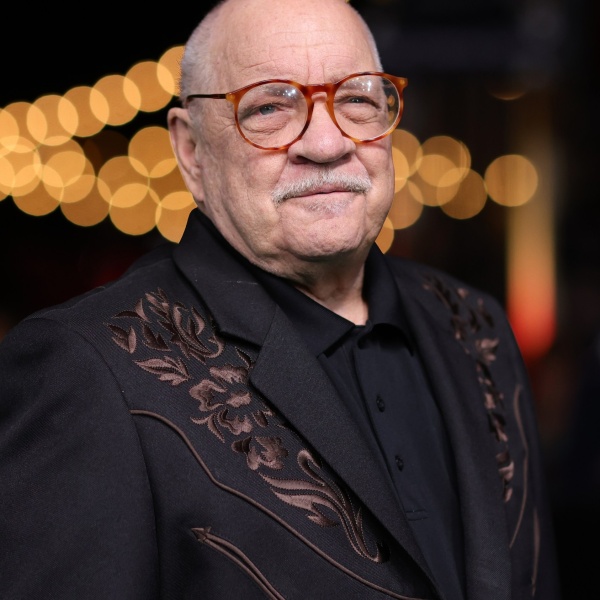
The story of recent the Sundance and SXSW hit “Sound Of My Voice” is pretty straightforward. Concerning a couple of documentary filmmakers who infiltrate a cult, the film, on paper, seems suspenseful and ripe for a penetrating insight into the nature of perception versus reality and an exploration of the idea of how we form bonds that unite us. But onscreen, “Sound Of My Voice” demands even more attention, as director Zal Batmanglij and co-writer and star Brit Marling have created something altogether haunting and unexpected (as we noted in our review). When plot elements surface suggesting that this may be a sort of “genre” picture, the execution is both immediate and ethereal. It feels only vaguely like a world we know, and as such, the tension only escalates, whether it’s an intense, obvious threat or an otherwise-mundane depiction of shower scrubbing.
We sat down with Mr. Batmanglij and Ms. Marling, who plays cult leader Maggie, at SXSW to discuss “Sound Of My Voice” and the creative process that has led them to become a much-talked-about duo.
The Playlist: What was the starting point for the core ideas in “Sound Of My Voice?”
ZB: We were fascinated with the idea that you’re born into a tribe, which is your family. And then later on, you’ll have a child, and that’s the family you make. But in your twenties, your thirties maybe, you’re looking for a group. Especially in America, when you move away from home, sometimes you get disconnected with your grandparents, your friends you grew up with. I think that a cult is just an extreme form of a group.

Can you talk about the similarities of the cult in the film and the tunnel-vision that accompanies the cult-like behavior of the couple?
BM: I’m not sure if this is a cultural thing or a generational thing, but I think where we are in America, there’s sort of a crisis of meaning. Like, how everything the baby boomers have said about how the world should and could work just fell apart. And I think the millennial generation is left in the vacuum of that. How do you construct a meaningful life? And I think a cult, particularly this cult, is offering a prescription for you, which is kind of appealing. Like, Maggie has access to what the future looks like, if she leads you into her secret world, you will be prepared. Here’s how you should dress, here’s what you should eat. Here’s how you should get your skill set to survive.
ZB: I think the thing with Peter and Laura [the couple] is interesting too, because Peter is so skeptical, and so rational at the beginning, and Laura’s more into it, and I think those viewpoints fluctuate at the end. And getting there was pretty natural and organic. I think we knew we had the story when we had that [fluctuation].
Maggie, of course, claims she has time traveled from the future. How much did you develop this “future” that Maggie speaks about?
BM: As writers, we’ve thought everything out. Of course, there’s an answer to who Maggie is, there’s an answer to that riddle. It’s actually a much larger universe, and this script is just a splinter of that. So hopefully we’ll get to continue the story, whether it’s a trilogy of features, or a miniseries, a TV series. So we’d love to get to that ending, which only five people know right now. As an actor, I spend a lot of time daydreaming about a lot of things [in relation to the story]. But I can’t tell you those things, because it would reveal who Maggie really is!
ZB: Well, we write every day for about four hours, five to six times a week. They’re like little droplets into a bucket. So over the years, it starts overflowing, and then you have a story. We did put it to bed, though, and started writing something that we’re shooting this summer, and then we got to money to shoot this.
How were you able to achieve the realism at the heart of the depiction of Maggie’s cult? How did you make the absurd conceit of the cult so convincing to a dubious audience?
ZB: A lot of the group members never say anything, but our casting for that was so intensive for them, so meticulous. The film rides a tightrope, and any moment, you can easily fall off the tightrope. So I kept pushing this way and that way, and we trimmed it in editing. But at any point, this conceit of this Southern California group is this basement, dressed in all white, becomes laughable. Authenticity was the most important thing. We wanted to keep it real and not judge the group, not putting the word “cults” into it. Look, these people believe! And if some girl took off her hood, and said she was from the future, and it was Brit doing it, then I’d be open…
Without spoiling anything, one of the film’s biggest twists hinges on a well-known pop song. How did you come upon the unpredictability of that moment?
ZB: I think the idea came by accident. I was working other jobs, and we were writing together at night. Brit was leaning against the wall and humming that song and I was on my skateboard with my finger camera, and I said, just start singing it! And she did and I just wondered, wait, why can’t we do this? When you hit one of those moments where you’re like, why can’t we do this? And you can’t come up with an answer, and you realize, this idea was way beyond you, it came to you, and you just hang onto it.
Can you talk about the sterility of the film’s visual scheme? It’s a unique visual statement.
ZB: It’s the coldness of the cinematography. I knew that cinematographer, Rachel Morrison, and seen her work and just thought, that’s the coldest DP I know. And so when we wrote the story, I said, I gotta call Rachel Morrison, I want that coldness. Because Maggie is so warm in some ways, and you’re lured in, but coldness keeps us at a distance.
Maggie also has a sensuality, but it’s so guarded, so distant. In each scene she appears to be completely in control. How did you capture that dynamic?
BM: I never thought of that myself, actually that element of control, and what that’s pointing to. I think that the real seed for Maggie was the scene between her and Peter when she gets Peter to emotionally and physically throw up. On one hand, is she giving us signals? She’s in that moment very intuitive and compassionate in the way she’s reading him. You feel her sensitivity and connection with him. And on the other hand, there’s this kind of cruelty, and when he gets her at one point, she becomes like a viper. Like I want to, like, bite you, and poison you, and then I also wanna suck out the poison. When we cracked that scene, we cracked into Maggie. And everything as an actor came down to getting to the bottom of the feeling. Which is, dealing with someone who’s very vulnerable, very needing of love, in need of protection. As a cult leader, she’s feeding off this energy, of all these people who are devoted to her. And if anyone pulls this devotion away, then that’s an abyss to fall into.
Of course, Maggie also gives off that strong maternal vibe as well.
ZB: Yeah. I think Peter is very motivated because he’s lost his mom to the cult. And then, Maggie sort of has this moment, where she’s like, I’ll mommy you.
BM: Maggie is a bit of a con artist slash charlatan slash old Hollywood star in her. Which is, “I will fulfill a little bit of what this fantasy is. I’ll be your mom if you need a mom, I’ll be your lover if you need a lover, I can be your sister.” And I think she sort of vacillates between all these things.
There’s definitely that sense that you want to much more of the personality Maggie is doling out piecemeal.
ZB: I think a lot of the guys and the audience actually lean in! And I think that’s the sexiest thing ever, like, I’ve seen audiences want to know more, and they just lean in. It’s great!
Can you talk about your next project
ZB: We wrote a script last year about anarchists, it’s called “The East” and we’re gonna make it somewhere. It’s about a group of anarchists and a woman who infiltrates the anarchists.
BM: It’s espionage again! It’s something we’re both fascinated by, the idea of changing your identity, changing the outside of yourself, in order to infiltrate something.
ZB: We’re gonna make it this summer, by hook or by crook. It just depends on who gets to make it with us.





